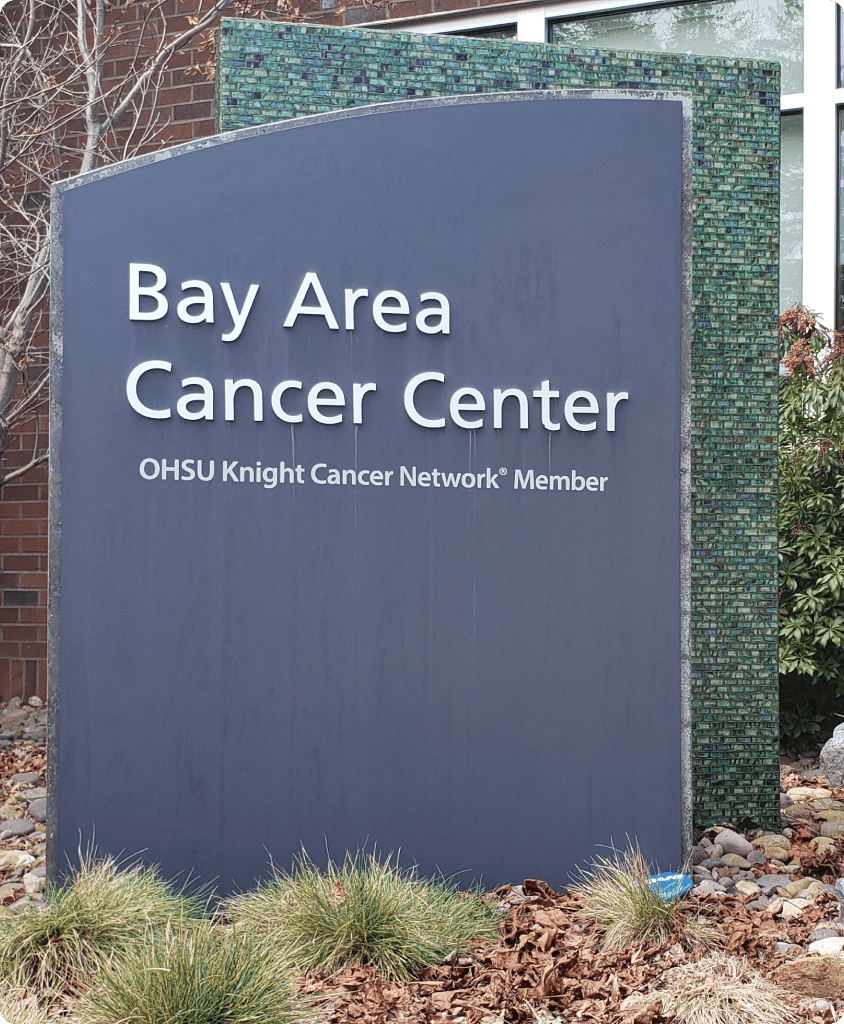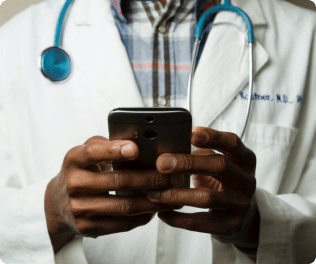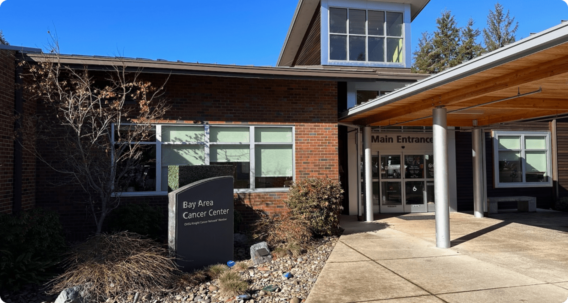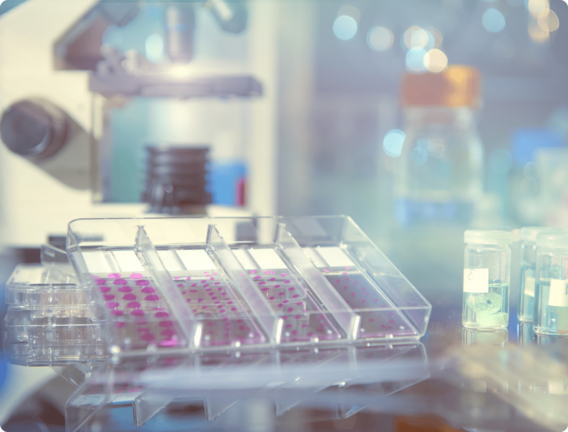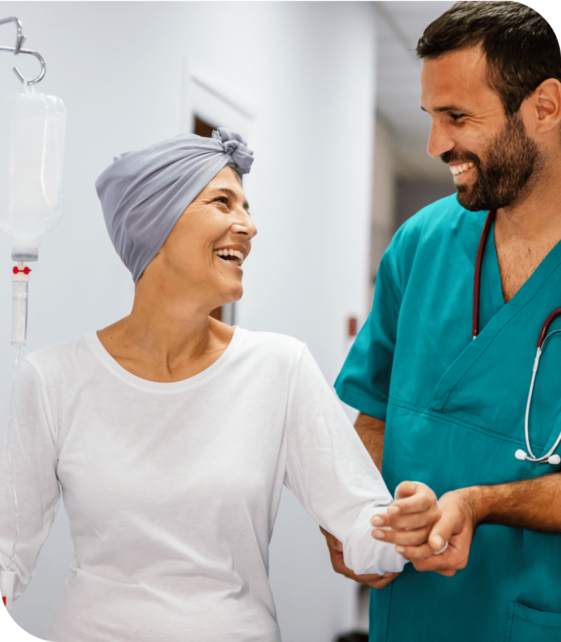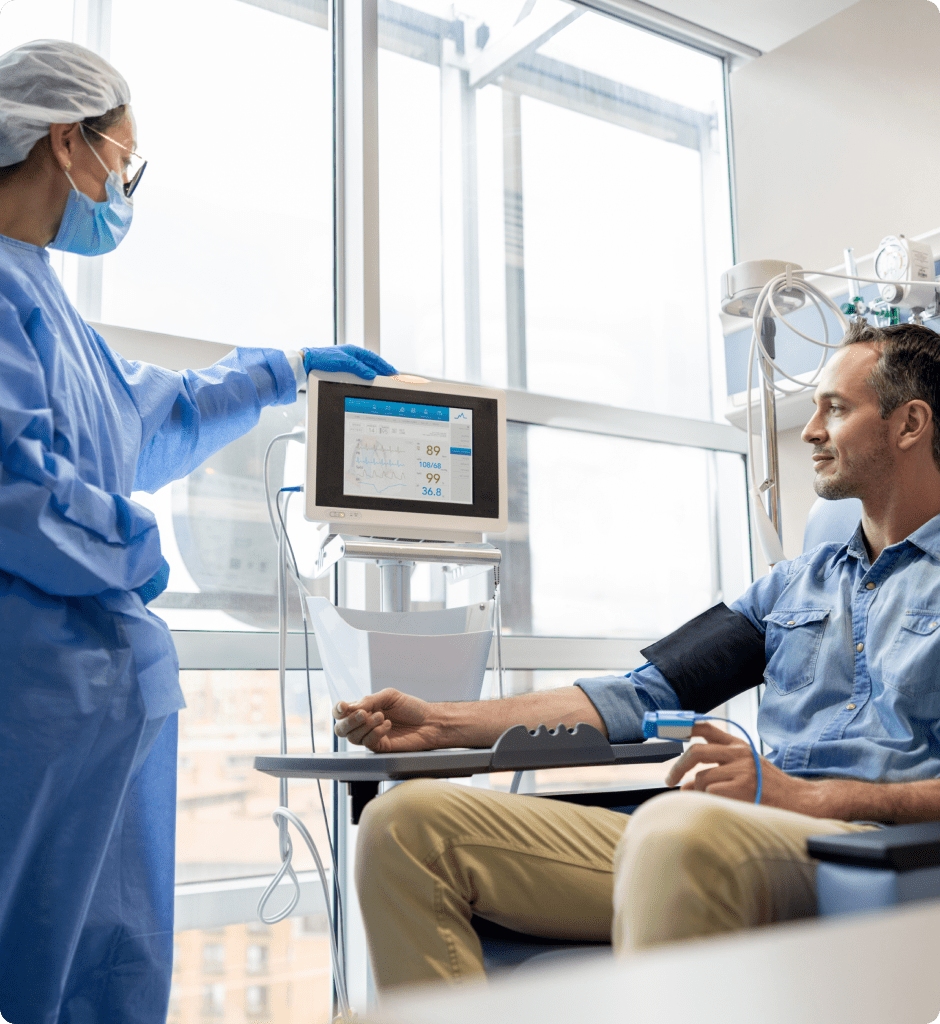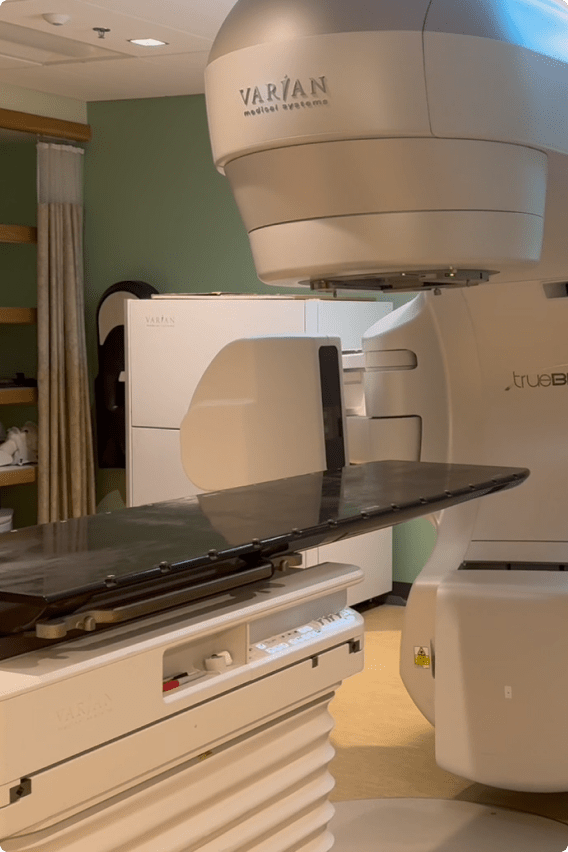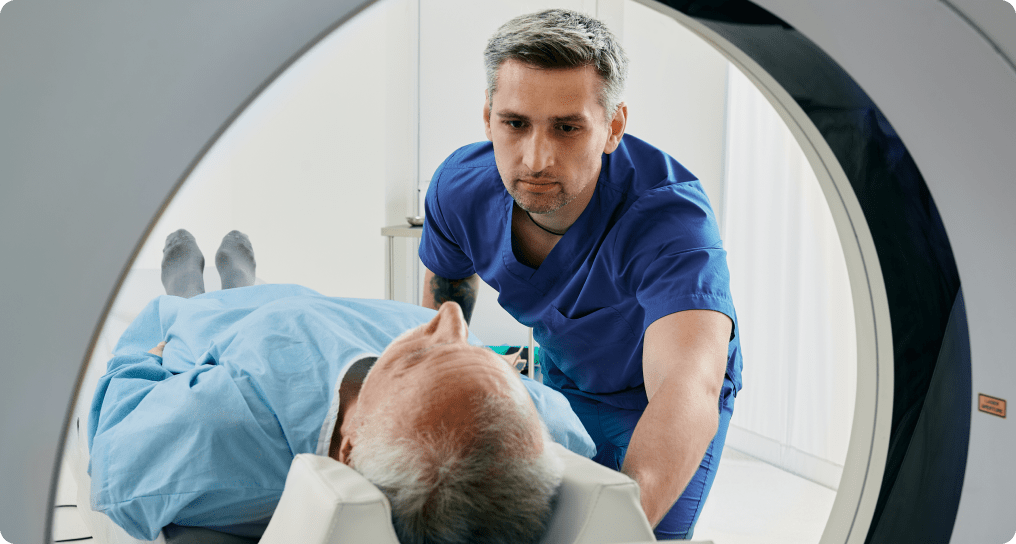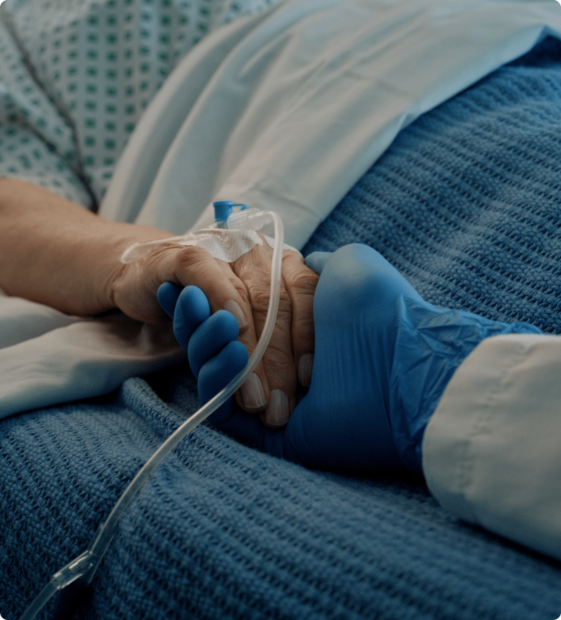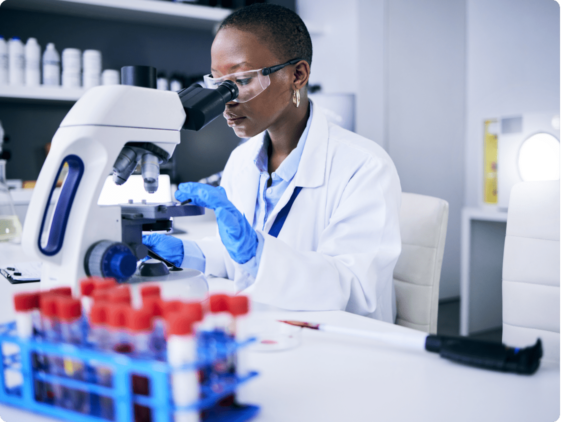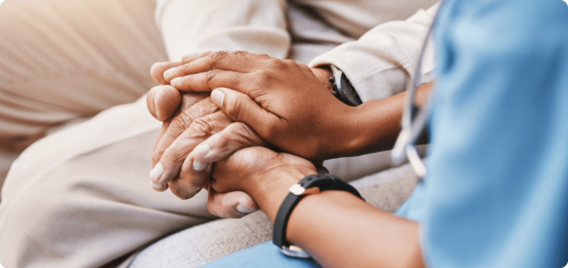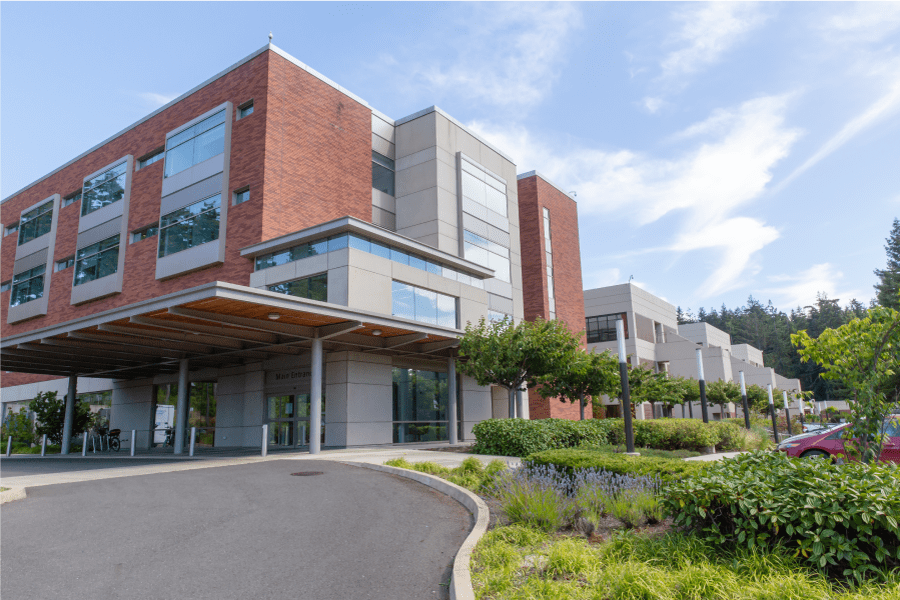We know radiation treatment can seem mysterious and overwhelming. So our multidisciplinary team works hard to make you feel comfortable and well-informed. We don’t just target tumors – we care for the whole person.
What is Radiation Therapy?
Radiation Therapy involves the precision use of radiation to treat cancer. External beams focus directly at the cancer while protecting healthy tissues from high doses of radiation. It destroys cancer cells while minimizing impact on the surrounding healthy tissue. The treatment is administered like an X-ray, using machines called linear accelerators. Our treatment modalities include:
- Standard X-Ray and Electron Beam Radiation Therapy
- Intensity-Modulated Radiation Therapy (IMRT)
- Stereotactic Radiation Therapy (SRS)
- Stereotactic Body Radiation Therapy (SBRT)
- Image Guided Radiation Therapy (IGRT)
- Surface Guided Radiation Therapy (SGRT)
At Bay Area Cancer Center, our goal is to do the least invasive procedures possible to achieve the most positive results. These procedures typically are done on an outpatient basis, and you can return home right after treatment. Radiation therapy may be combined with surgery and/or chemotherapy to achieve maximum benefit. Our radiation therapy facility is the largest on the Oregon Coast, serving hundreds of patients each year.
What to Expect
One of the first people you’ll meet at the Radiation Therapy Center will be your Oncology Nurse. This highly trained, experienced professional will be your liaison and advocate throughout your treatment, with a door that’s always open to patients.
On the first visit, your nurse will spend time getting to know you and your family. She’ll want to know your whole health history, including the medications you take. She’ll find out what kind of support you may need during your treatment, such as a dietary consultation, assistance with insurance red tape, and even rides to and from therapy. She’ll make sure you understand your medical condition and the tests that have been conducted so far. Easing your anxiety about cancer treatment is an important goal.
After spending time with the nurse, you’ll meet your Radiation Oncologist, a physician who specializes in radiation therapy. The Radiation Oncologist will explain your radiation treatments, possible side effects, and your treatment schedule. They will make sure you understand your diagnosis and your test results, and will give you a physical exam prior to creating a treatment plan.
Your Treatment Schedule
Your first treatment will take about an hour, as our Radiation Therapists take X-rays to confirm that you are correctly positioned to receive your treatment, and that the radiation beams are shaped the way they were designed in the plan. After that, you’ll visit us every Monday through Friday, with each treatment taking about 15 minutes.
Every patient’s treatment plan is different. You may undergo just a few treatments, or your treatment could last several weeks.
We understand that cancer treatment isn’t the only thing going on in your life. So we make every effort to accommodate your needs. We’ll try to schedule your treatments at the most convenient time of day. If you need to go out of town, your doctor may be willing to approve a day off from treatment.

